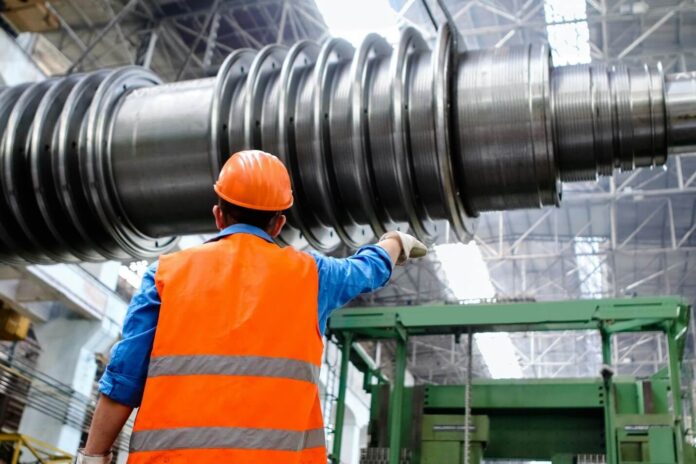When it comes to industrial plants and other workspaces like that, safety and cleanliness are some of the most important facets of keeping operations running. Boiler tubes are certainly one part of that, and that’s what we’ll be focusing on here today. You may be surprised by how relevant the upkeep on these tubes can be!
You may already know some of the uses for them, but today, we’ll be covering several of the settings where boiler tubes play a fairly important role. Keeping them properly maintained and cleaned is the truly critical part, though, so make sure to stay tuned if you’d like to learn more about that process and how you can make it quick and easy.
What are Boiler Tubes?
Of course, the first question we have to consider is this one: what are boiler tubes, anyway? They’re not something that most folks think about on a daily basis, yet they’re quite important throughout many different boiler systems. Before we delve into that further, though, let’s take a look at a basic definition.
Simply put, boiler tubes are tubes used in boilers to transfer heat and hot gases from the combustion chamber to the water inside the system. More often than not, they tend to be made of steel or other heat-resistant materials. With that in mind, it’s hardly a surprise that they are designed to withstand high temperatures and pressure—that’s the entire point!

Where Are They Used?
The next consideration is simple as well: where can we find these tubes? There are several answers, so let’s delve into them now.
Industrial Boilers: These are perhaps the most obvious of all the ones we’ll be covering here today. The tubes are used in industrial boilers that are utilized in manufacturing facilities, power plants, refineries, and other large-scale industrial settings to generate steam for heating, process heating, and power generation.
Commercial Boilers: While the previous entry was obvious, these are ones that we run into a lot more in our daily lives (unless we have a job at an industrial facility). They’re used in buildings such as schools, hospitals, hotels, and office buildings to provide heating and hot water.
Residential Boilers: These are pretty much what they sound like on the tin—boilers that are in residential homes or apartment buildings, intended (once again) to offer heating and hot water. It’s important to keep the tubes clean in these as well as the others, which some folks aren’t aware of.
Marine boilers: This is the last use we’ll be covering here today, and it’s something that takes a lot of people off guard. Boiler tubes are used in marine boilers on ships and vessels to generate steam for propulsion and other onboard applications. You can read more about all of these potential applications here: https://putzmaus-america.com/, if you’re curious.
Why is Cleaning Important?
Now, let’s take a look at the topic that tends to weigh on a lot of minds here: why do these tubes need to be cleaned so much? Well, it needs to be cleaned regularly to maintain the efficient and effective operation of the overall system.
You see, over time, they can accumulate deposits of ash, soot, scale, and other contaminants, which can significantly reduce the heat transfer efficiency of the system.
Improved heat transfer efficiency: Something to think about is the fact thatthe accumulation of deposits on boiler tubes acts as an insulating layer, which reduces the ability of the tubes to transfer heat from the combustion gases to the water. In turn, this can lead to decreased boiler efficiency, increased energy consumption, and higher operating costs.
Corrosion Prevention: Another reason that cleaning is necessary is that deposits on them can trap moisture and corrosive compounds, promoting corrosion of the tube material. Unfortunately, corrosion can weaken the tubes, leading to leaks, failures, and costly repairs or replacements.
Overheating Prevention: Naturally, no one really wants their systems to end up overheating. The deposits and buildup on the tubes can obstruct the flow of hot gases, leading to localized overheating. The bad part is that this can cause damage to the tubes, reduce their lifespan, and increase the risk of tube failures.
Regulation Compliance: With all of these systems, there are general regulations put in place to ensure safety and proper protocols. You see, in many industries, there are regulatory requirements for boiler cleanliness and emissions. Regular cleaning can help ensure compliance with these regulations and avoid potential fines or penalties for non-compliance.
Blockage Prevention: Deposits on the tubes can accumulate and form blockages that obstruct the flow of gases, air, and water through the system. In turn, this can reduce the performance of the boiler, cause pressure drops, and lead to operational issues—all things that we should try to avoid.
Extending Equipment Lifespan: The final reason we’d like to cover today is this – the extension of equipment lifespans. Regular cleaning and maintenance of boiler tubes can help prolong the lifespan of the boiler system and its components. Clean tubes are less prone to damage and wear, leading to improved reliability and longevity of the equipment.
Read also 10 Ways to Spruce Up Your Guest Bathroom

How it Works
The other question that tends to come up is this: how do we actually clean these tubes? It will likely depend on where they are located, as well as what the purpose is. What’s nice is that in recent years, there have been innovations in this field.
In fact, there are plenty of options that keep the process relatively risk-free, protecting everyone involved. You see, there are special machines designed specifically for cleaning boiler tubes! You can find them at specialty retailers.
Often, they come as a handheld tool that is strong and sturdy, fitted with bristles that aren’t going to damage the stainless steel still tubes (or whatever material they’re made out of). There are plenty of options out there, though, so you can experiment to find what works best!


